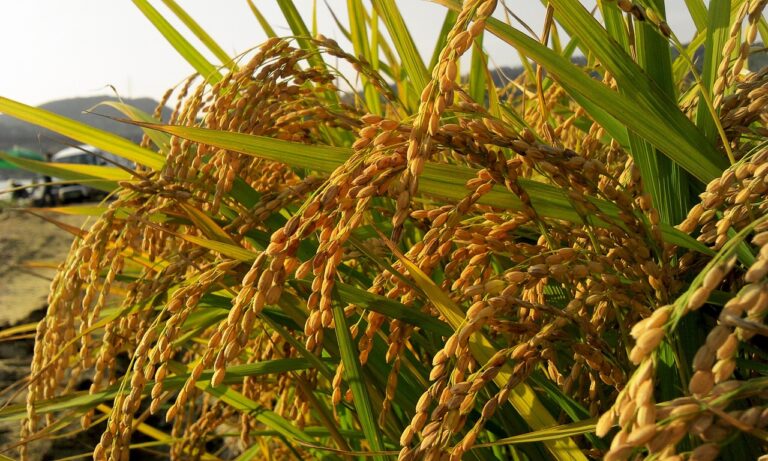The Impact of Agroecology on Reducing Dependence on External Inputs: Goldbet7, Radheexch, 11xplayonline
goldbet7, radheexch, 11xplayonline: Agroecology is gaining significant traction as a farming practice that focuses on sustainability, regenerative agriculture, and reducing dependence on external inputs such as chemical fertilizers and pesticides. This holistic approach to agriculture prioritizes the use of natural resources, biodiversity, and traditional farming knowledge to create resilient and productive farming systems.
The Impact of Agroecology on Reducing Dependence on External Inputs
Agroecology is a dynamic and evolving field that offers numerous benefits to farmers, consumers, and the environment. One of the key impacts of agroecology is its ability to reduce dependence on external inputs. By promoting natural farming practices, agroecology minimizes the need for costly and harmful chemical inputs, leading to improved soil health, increased biodiversity, and enhanced resilience to pests and diseases.
1. Promoting Soil Health
Agroecology prioritizes practices that build and maintain healthy soils, such as crop rotation, cover cropping, and composting. These practices enhance soil structure, fertility, and moisture retention, reducing the need for synthetic fertilizers and pesticides. Healthy soils are also better able to sequester carbon, mitigating climate change and reducing the environmental impact of agriculture.
2. Enhancing Biodiversity
By promoting diverse cropping systems and crop varieties, agroecology strengthens agroecosystems and reduces the risk of pest and disease outbreaks. Biodiversity also supports pollinators, beneficial insects, and natural predators, providing natural pest management services that reduce the need for chemical interventions. Additionally, diverse farming systems are more resilient to climate variability, ensuring stable yields and food security.
3. Improving Water Management
Agroecology emphasizes water conservation and efficiency through practices such as rainwater harvesting, agroforestry, and soil conservation. By optimizing water use and reducing runoff, agroecology helps farmers cope with water scarcity and climate change impacts. Sustainable water management also protects water quality, reduces contamination from chemical inputs, and supports healthy ecosystems.
4. Strengthening Local Economies
Agroecology promotes diversified and decentralized food systems that prioritize local production, distribution, and consumption. By reducing dependence on external inputs and industrial farming practices, agroecology supports small-scale farmers, local markets, and community resilience. This leads to economic empowerment, job creation, and food sovereignty, ensuring that resources stay within the community and contribute to local development.
5. Mitigating Climate Change
Agroecology has the potential to sequester carbon in soils, plants, and agroforestry systems, reducing greenhouse gas emissions and mitigating climate change. By promoting regenerative practices that enhance carbon storage and biodiversity, agroecology helps farmers adapt to changing climatic conditions and reduce their environmental footprint. This sustainable approach to agriculture contributes to global efforts to combat climate change and build a more resilient food system.
6. Supporting Food Security and Nutrition
Agroecology prioritizes the production of nutritious, diverse, and culturally appropriate foods that support human health and well-being. By promoting local food systems, agroecology ensures access to fresh, seasonal, and affordable foods, reducing the reliance on processed and imported products. This enhances food security, nutrition, and food sovereignty, empowering communities to make informed choices about their diets and lifestyles.
In conclusion, agroecology offers a holistic and sustainable approach to agriculture that reduces dependence on external inputs and promotes environmental, social, and economic benefits. By prioritizing soil health, biodiversity, water management, local economies, climate change mitigation, and food security, agroecology demonstrates its potential to transform the food system and create a more resilient and equitable future for all.
FAQs
Q: What is agroecology?
A: Agroecology is a farming practice that combines ecological principles with traditional knowledge to create sustainable and regenerative agricultural systems.
Q: How does agroecology reduce dependence on external inputs?
A: Agroecology promotes natural farming practices that enhance soil health, biodiversity, water management, and local economies, reducing the need for chemical fertilizers and pesticides.
Q: What are the benefits of agroecology?
A: Agroecology offers numerous benefits, including improved soil health, enhanced biodiversity, water conservation, climate change mitigation, food security, and community empowerment.
Q: How can I support agroecology?
A: You can support agroecology by buying from local farmers, advocating for sustainable agricultural policies, promoting agroecological practices, and participating in community food projects.







